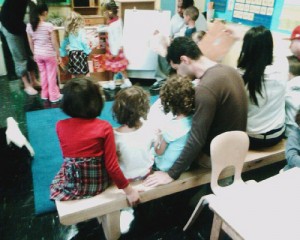The school year needs to be longer than 180 days and teachers need to work during those longer school years. Right now, they only have about 45 minutes a day to prepare for the class, and that's not enough. Our focus should be on figuring out what do we need to do to make teachers most effective?"
- Reed Hastings on new school models that work:
"It's heartening to see schools actually reversing the achievement gap. Rocketship in San Jose, the KIPP schools in San Jose, and American Indian Charter in Oakland have cracked the formula. We need them to run 50 or 60 schools, to bring some passion to other schools."
- Salman Khan on leveraging technology as a way to close the achievement gap.
"The school of the future will be like a one-room schoolhouse. There will be kids of all ages, and part of the day will be spent using technology to learn at their own pace. We avoid the problem of superficially learning subjects. There will be no 'pretend learning.' A teacher gets a dashboard, and figures out who are the kids that are stuck, and will focus on those who need the most help. Or better yet, have the kids are doing better help the ones who are struggling. Teachers will become a mentor or a coach. Everyone will learns at their own pace."
- Glenn Singleton on the urgency of the need to rethink race and class in education:
"We have to think about alternatives to what we've been doing until now. What do we do to change the educational outcome of black and brown students? What are the models that we want to replicate? There are generations of black families that have been miseducated. School systems have never done what we've asked them to do. The success of a child is dependent on the quality of a teacher. The most needy kids need the most qualified teachers in the most supportive schools."


